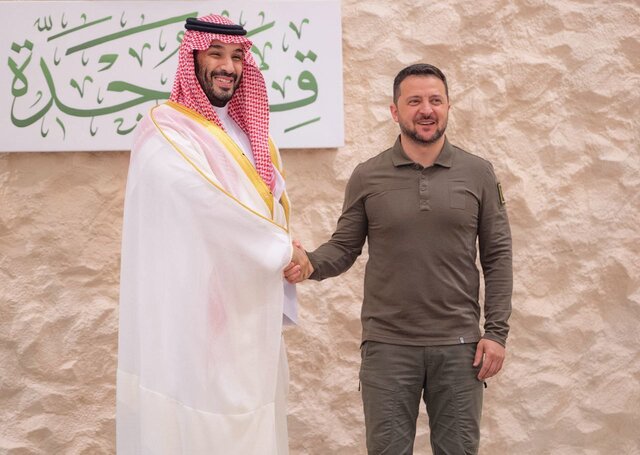An important event took place today at the summit of the League of Arab States in Jeddah. And it’s not about the scandalous invitation of Syrian dictator Bashar al-Assad, but about what overshadowed his presence at the event.
Ukraine’s President Volodymyr Zelensky appeared as an honored guest at the LAS summit and delivered an important message. In his speech, Zelensky not only conveyed Ukraine’s view of Russian aggression to the Arab leaders, but also put the Islamic dimension at the center of this vision.
He emphasized that the first victims of Russian aggression in Ukraine were the Muslims of Crimea, calling it the center of Muslim culture in Ukraine and an area that is and should remain an integral part of the global Islamic world. This message was further reinforced by the presence at the summit of the moral leader of the Crimean Tatar people, Mustafa Dzhemilev.
Zelensky also met personally with the host of the summit, Muhammad bin Salman (MBS), and leaders of other regional countries such as the United Arab Emirates and Oman. MBS offered Zelensky his mediation in resolving the conflict, while the Ukrainian leader clearly stated the Ukrainian formula for possible peace – Russian troops must leave Ukrainian territory.
It should be noted that Volodymyr Zelensky consistently develops initiatives in the Islamic direction, both in domestic and foreign policy. Earlier, he publicly attended an iftar during Ramadan, something that Putin, who has been president for twenty years, has never done in a country with 20 million Muslims. And now he is addressing the Islamic world, emphasizing that part of the country he leads historically belongs to them and should continue to do so.
By the way, this brings us back to our last article, which was supported by some of our Ukrainian Crimean Tatar readers and criticized by others. This is what we had in mind – the Islamic and Crimean Tatar factors should become and are becoming part of Ukrainian identity and politics, both internally and externally. And we can see that it is happening, which makes the consolidation of their special status in Crimea inevitable in one way or another after the de-occupation.
The only thing to be regretted about Zelensky’s speech is that he did not convey to the audience the reality of the systemic struggle against Islam in Russia and its freedom in Ukraine. Of course, the majority of those present at this summit would not be interested in this, as Assad’s invitation proves. But hundreds of millions of people around the world would have heard about it, which would have further strengthened Ukraine’s position among Muslims.
We hope that this will happen next time, because Ukraine should move from being a protector only of its Muslims to a policy of supporting other occupied and oppressed Muslim peoples of Russia.

